While I was running on the treadmill at the gym, I happened upon a news report concerning the lack of creativity in the workplace. The subtitles read: How can we encourage creativity in the workplace? My reaction? I almost flew off backwards in rage! The reason for my impassioned reaction was because my mind immediately went to our current education system and its impact on children.
From what I continue to observe and based on my problematising with a wide range of early years professionals, academics and parents, there is an ever-increasing emphasis on academic outcomes – from a younger and younger age, at the expense of other equally – if not more important skills and qualities being nurtured. Academic outcomes demand rigorous testing of our children – something which takes place at a younger and younger age. For what purpose? Is it for our children’s happiness, wellbeing and ability to build healthy relationships with their peers and adults? No! It is so they can be labelled and categorised, and where they do not reach that one-size-fits-all, catch-all prescriptive Good Level of Development (GLD), are labelled as ‘low ability’. Yet schools are also loath to give out too many ‘1s’ as they ‘need’ to demonstrate progression from Reception into Year 1. Surely this is unjust? Worse still (and it beggars belief), is the fact that, from 2020 our children will be tested on entry to school whether they are 4 or 5 and this data will be used as a tool to predict their achievement at the end of Year 6. How on earth can such predictions be made? Such Baseline Assessments make no allowances for that vast spectrum of diverse experiences and particularly, Adverse Childhood Experiences (ACE) which impact a child’s holistic health and wellbeing in ways so fundamentally, that no test can ever hope to acknowledge this. This ridiculous and detrimental move must be thwarted for our children’s mental health and holistic wellbeing. Canadian College Professor of Early Childhood Education, Sue Martin explains:
Sometimes I think that the education system does much more harm than good. Young children suffer from the way things are structured, and sometimes because of a lack of empathy or understanding by their teachers. A lack of resources and inadequate teacher preparation sets them up for failure. There are gifted teachers who have extensive knowledge of children’s development, and who stand up for children’s rights but parents are lucky to find them. Classes often have teacher-directed activities rather than inquiry led by children’s interests. This is partly due to curricula designed by policy-makers with an interest in metrics rather than authentic learning. The horrendous testing that is meant to check on achievement, diminishes rich learning opportunities, places unnecessary pressure on children and ensures learning is reduced to content knowledge as opposed to true thinking skills.
Standardised testing is taken up globally as the panacea for educational outcomes rather than addressing and transforming the outmoded ‘system’ that forms its very foundation. I am a mother to a five-year-old child who often cries when I sit her down on a daily basis to practice for her weekly spelling tests at school. I truly despair. I am part of the system that I fight against. Finding a suitable alternative for her is proving difficult but I cannot continue her education in an institution which uses ‘time out’ and the equally futile and detrimental ‘carousel system’ for learning. ‘What’s that?’ You may ask. Well, children are given ten minutes at a table to engage in an activity before they must move to the next table of activities at the shake of a tambourine. During a ‘meet the teacher’ evening when this was explained to us as if it were a brilliant approach to learning, I immediately challenged it. I asked how children were expected to engage with their learning, solve problems and truly immerse themselves in the experience. The teacher said it is done to prepare them for the more formal approach to learning in Year 1. In answer to my three questions, she replied, ‘we expect that the activity is completed and we move them on’. Incensed as I remain, I alone, cannot change their unsound, adult-led, soulless policies which go against truly child-centred learning.
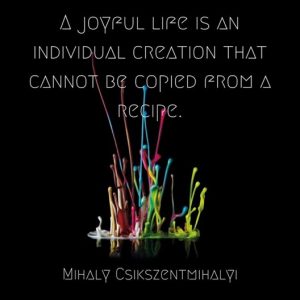 This brings to mind the invaluable but under-used work of the philosopher, Mihaly Csikszentmihalyi, who coins the term flow, to describe the optimal psychological state that children and adults experience when engaged in an activity that is appropriately challenging to their skill level, resulting in immersion and concentrated focus on a task. This can result in deep learning and high levels of personal and work satisfaction.
This brings to mind the invaluable but under-used work of the philosopher, Mihaly Csikszentmihalyi, who coins the term flow, to describe the optimal psychological state that children and adults experience when engaged in an activity that is appropriately challenging to their skill level, resulting in immersion and concentrated focus on a task. This can result in deep learning and high levels of personal and work satisfaction.
Approaches to learning such as the ‘carousel system’ do nothing to encourage and develop such flow and immersion – so what do the children get out of this? Moreover, I ask you to reflect on these three questions:
- What skills do you want your child to develop at school?
- How will you afford children the opportunities to achieve this higher psychological state during the daily routine?
- What is the true purpose of education?
When I come across statistics like this one, from the World Economic Forum’s the Future of Jobs Executive Summary (2016: 1), which states that:
65% of children entering primary school today will ultimately end up working in completely new job types that don’t yet exist.
I ask myself whether our schools are equipped to prepare our children for these jobs which do not yet exist. My instinct tells me they are not. Rote learning, exercising minimal choice in their learning and spending far too long indoors, are not sound approaches to igniting curiosity, supporting problem-solving and fuelling creativity. As Sir Ken Robinson asserts:
We don’t grow into creativity, we grow out of it. Or rather, we get educated out of it. TED Video (2006) –http://www.ted.com/talks/ken_robinson_says_schools_kill_creativity.html
These conflicting perspectives are also why we need to view post-conceptualist criticisms of neuroscience with caution. They too, do not provide us with the universal ‘truth’. Post-conceptualists condemn certain uses of the discipline, one of which is used across political and socio-economic agendas, to promote economic outcomes of a society – that is, viewing children as future work fodder. As Vanderbroeck (2017: 2) asserts:
I wish to criticise how the neurosciences are used to shape early childhood education as a commodity and an investment of which we expect an economic return.
While I accept the concerns here, primarily, that childhood and the experiential learning that takes place during this unique phase of life, should be valued for exactly that – not as preparation for anything else. Because as soon as we start viewing it as preparation for ‘life’ (consider ‘prep’ schools) we immediately view it as something it is not – and we mess with it, manipulating it into something we want to see and achieve – certainly not what children want. I do however, simultaneously refute such post-conceptualist criticisms because every theory and perspective concerning how children learn, should learn, or learn best are framed. They are framed within a particular political, cultural, societal and scientific context and these cannot be eschewed, and when we are being informed that schools are now teaching towards skillsets that may well be redundant when our children grow up, we do need to seriously reflect on the questions that such perspectives raise. For – example, what is the true purpose of education? I strongly believe this is a dialogue/debate that needs to take place. Why are teachers doing what they are doing? Do they even think about their provision on any deep level, other than ‘that’s what Ofsted requires?’ Or, ‘That’s our policy’… As a mother and an early years professional, it is not good enough – and it is undermining our children’s innate curiosity and ability to learn in infinite ways. What do we want from our children’s education? While writing this article, my daughter’s friend asked me what I’m doing. I told her ‘I’m writing about how much I dislike schools’. Both girls immediately expressed excitement, jumping and shouting ‘yeah, we don’t play enough and we do phonics and we don’t like it! C-C-curly C; rubbish! And we don’t play outside enough!’ Well, these infuriated 5-year-olds pretty much took the words out of my mouth!
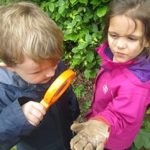 Children must be afforded the freedom to flourish – to take risks – and of great importance, to get things wrong. Yes! To get it wrong – because it is from these experiences that children independently learn and create their understanding of how things work – and do not. The concept of growth mindset (a concept by psychologist Carol Dweck who has conducted over 30yrs research on the subject) is of pertinence here. With a growth mindset, children understand that their talents and abilities can be developed through effort and your consistent, specific praise. It’s the opposite of a fixed mindset in which a child believes their abilities and therefore, intelligence are fixed traits – that’s their lot and nothing can be done to change this. These children often don’t want to try for fear of ‘failing’. A key tenet of growth mindset is that sometimes children do get it wrong and that this is ok! Professionals and parents like you who can get children back on track and encourage them to persist, to use trial and error to solve the problems they encounter in different ways, builds lateral thinking skills, vocabulary and a healthier, positive attitude to learning: these skills will serve them well in a range of contexts throughout their lives.
Children must be afforded the freedom to flourish – to take risks – and of great importance, to get things wrong. Yes! To get it wrong – because it is from these experiences that children independently learn and create their understanding of how things work – and do not. The concept of growth mindset (a concept by psychologist Carol Dweck who has conducted over 30yrs research on the subject) is of pertinence here. With a growth mindset, children understand that their talents and abilities can be developed through effort and your consistent, specific praise. It’s the opposite of a fixed mindset in which a child believes their abilities and therefore, intelligence are fixed traits – that’s their lot and nothing can be done to change this. These children often don’t want to try for fear of ‘failing’. A key tenet of growth mindset is that sometimes children do get it wrong and that this is ok! Professionals and parents like you who can get children back on track and encourage them to persist, to use trial and error to solve the problems they encounter in different ways, builds lateral thinking skills, vocabulary and a healthier, positive attitude to learning: these skills will serve them well in a range of contexts throughout their lives.
What can be done? (My wish-list)
What we need is a complete transformation (dare I say, revolution), which begins by challenging the very systems which perpetuate this harmful nonsense:
- A radical re-think of the Department for Education’s (DfE) priorities
- An overhaul of Ofsted inspectors’ obligations and consequent training of its inspectors
- A complete shift in priorities in teacher training, with more emphasis on early brain development, how to nurture a growth mindset and (truly) child-led learning
- Daring to challenge what we do not like or deem fit for our children
- Trusting the children to lead their own learning (and therefore guide us in how to best support them)
I would like to leave you with thoughts from Sir Ken Robinson, whose theorising (in my opinion) should be used to inform and transform our current education system, for the sake of our children and their futures.
…one of the roles of education is to awaken and develop [the] powers of creativity. Instead, what we have is a culture of standardisation.
About Mine Conkbayir
Mine is the author of Early Childhood Theories and Contemporary Issues – 20 Nov 2014 and most recently, Early Childhood and Neuroscience: Theory, Research and Implications for Practice – 12 Jan 2017, which is receiving positive feedback from professionals within the sector and in the wider community:
‘A FABULOUS addition to my bookshelf. Thanks for writing this book Mine. I’ve recommended it to all my students (who are scrambling to buy a copy). A long overdue look at childhood from an evidence-based neuroscience perspective, no pseudoscience, no hype, AND an enjoyable read. You’re my new hero!’’
– Sarah McKay, Eminent neuroscientist, TEDx speaker, science communicator and Founder of The Neuroscience Academy.
 Mine is currently studying for a PhD in early childhood education and care and neuroscience in order to further her extensive work in the complex and challenging arena of neuroscience and its potential use in early childhood policy and practice. As a Training and Development Director, Mine works closely with NEyTCO in order to better implement their vision for Early Years consultants and trainers, improve quality and promote better understanding of child development and the incredible long term benefits of early intervention.
Mine is currently studying for a PhD in early childhood education and care and neuroscience in order to further her extensive work in the complex and challenging arena of neuroscience and its potential use in early childhood policy and practice. As a Training and Development Director, Mine works closely with NEyTCO in order to better implement their vision for Early Years consultants and trainers, improve quality and promote better understanding of child development and the incredible long term benefits of early intervention.
Mine is the Winner of the NMT Top 5 Most Inspirational Award (2017) and her latest book is a finalist for the Nursery World Best Professional Book Award.
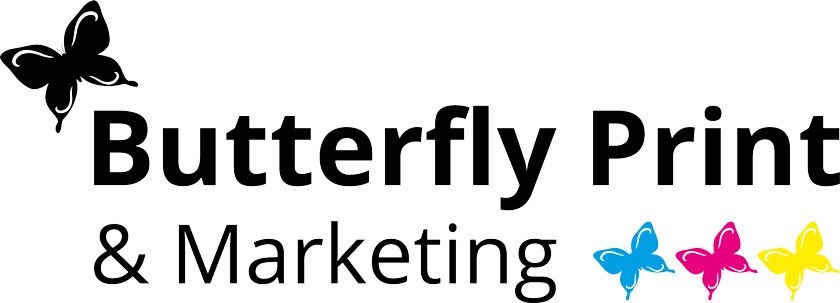
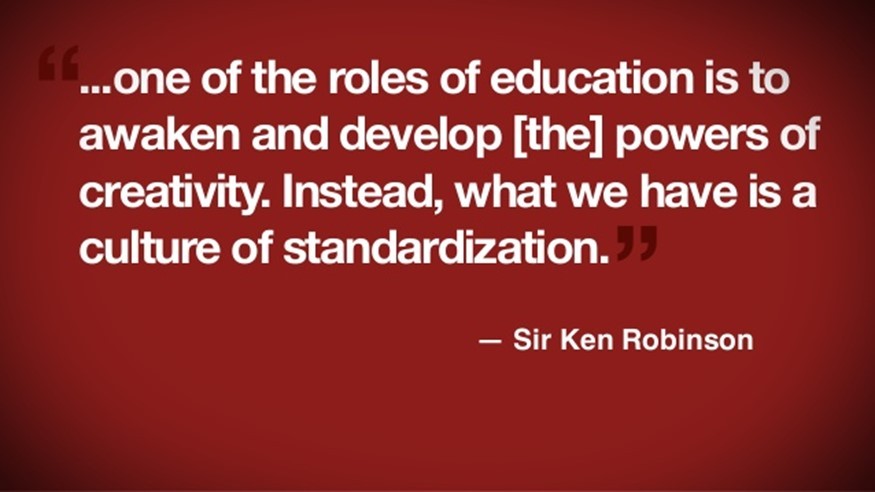
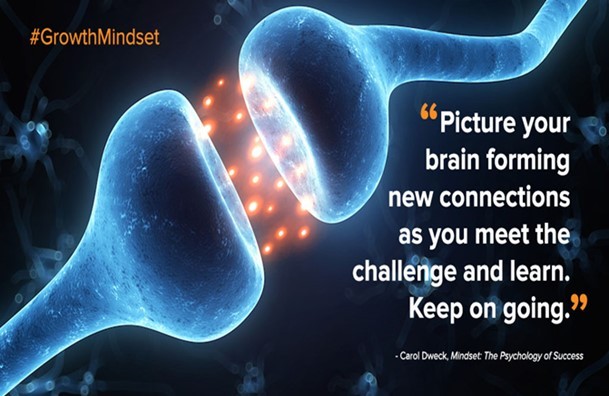






Leave A Comment
You must be logged in to post a comment.